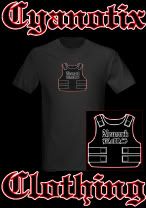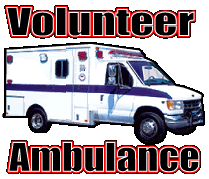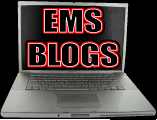 NJPIES is New Jersey's recognized statewide/regional poison information and education center. It was created by legislation (N.J.S.A. 26:2-119 et seq.) and began service on February 1, 1983, replacing about 35 local poison information centers at hospitals. The center operates 24 hours a day, seven days a week. NJPIES is a member of the American Association of Poison Control Centers (AAPCC) and is designated as a regional poison control center under AAPCC guidelines. Additionally, NJPIES also manages the Department of Health and Senior Services (DHSS) Rabies hotline and the AIDS hotline. NJPIES also serves as an information point for the department in cases of product tampering or product recall and in food-borne illness incidents, performing a valuable public service in times of crisis.
NJPIES is New Jersey's recognized statewide/regional poison information and education center. It was created by legislation (N.J.S.A. 26:2-119 et seq.) and began service on February 1, 1983, replacing about 35 local poison information centers at hospitals. The center operates 24 hours a day, seven days a week. NJPIES is a member of the American Association of Poison Control Centers (AAPCC) and is designated as a regional poison control center under AAPCC guidelines. Additionally, NJPIES also manages the Department of Health and Senior Services (DHSS) Rabies hotline and the AIDS hotline. NJPIES also serves as an information point for the department in cases of product tampering or product recall and in food-borne illness incidents, performing a valuable public service in times of crisis.Call volume has increased dramatically since NJPIES began service and now exceeds 100,000 calls annually. About half of these calls concern children under five years of age. Over 75% of the poison-related calls received by NJPIES are for poisoning exposures.
NJPIES is funded by all New Jersey hospitals as a regionalized service, by a grant administered through the DHSS Office of Emergency Medical Services, and by private donations. NJPIES is physically located at Newark Beth Israel Medical Center, an affiliate of the St. Barnabas Healthcare System, which also contributes to NJPIES support with in-kind services. Since 1992, the Department has negotiated a total poison control budget with NJPIES in order to control the cost of the program and to assure financial stability. NJPIES has one of the lowest "per call" costs of all the poison centers which are members of the AAPCC.
NJPIES Services
Three types of poison-related information services are offered by NJPIES: poison control, poison information, and drug information. Specialists in poison information, who are either physicians, registered nurses, or pharmacists, handle all calls.
Poison Control at NJPIES
Each year, NJPIES assists more than 100,000 callers who are concerned about their own or another person's exposure to a potentially poisonous (toxic) product. Use the toll-free hotline when you suspect a poisoning. About half of the specialists are fluent in Spanish and many are fluent in additional languages. A contract with the AT&T Language Line enables the specialists to respond to callers in more than 100 languages.
Poison Information at NJPIES
NJPIES encourages greater use of the hotline for information which can help to prevent poisonings. Use the hotline to ask the specialists questions prior to exposure to or use of a potentially poisonous or hazardous product, such as household chemicals, plants, cosmetics, or environmental contaminants like lead. They can help you to assess the possibility for harm or damage and give you recommendations for minimizing or eliminating product risk. For example, parents might ask if it was safe to use a particular pesticide on their lawn when there are small children at home. (Note that pesticide application companies are required by NJ Department of Environmental Protection regulations (N.J.A.C. 7:30) to give out NJPIES' 800 number after pesticides are applied.)
Drug Information at NJPIES
The hotline can also be used to receive up-to-date information to your questions about prescription and "over-the-counter" medication use, including herbal products. Specialists can accurately answer questions about adverse effects of medications, possible risks for drug interaction, or the potential effects of medicines on pregnancy or breast feeding.
NJPIES also provides other important services, such as:
* followup education to assist poisoning victims in preventing future incidents;
* educational programs for school children and their parents, senior citizens and the general public to improve awareness of poisoning problems and ways to prevent poisonings;
* educational programs for health and safety professionals in hospitals and public health agencies, students in health professions, community-based outreach workers, and community safety leaders
* press releases and information packets, including monthly press releases on poison-related topics, grade school take-home materials and lesson plans, National Poison Prevention Week information materials, newsletters for parents of New Jersey first-graders and for hospital emergency room personnel, and telephone stickers with the hotline number;
* NJPIES also participates in ongoing research to assist in reducing the risk for poisoning injury and mortality
How to Contact NJPIES
Emergency Hotline: 800-222-1222
Office: 973-972-9280
Fax: 973-926-0013
TTY: 973-926-8008























No comments:
Post a Comment